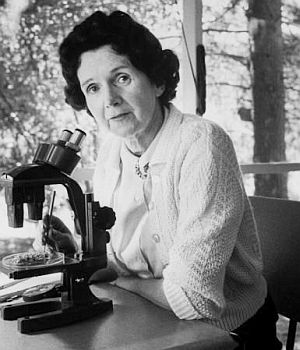 |
| The original edition of Silent Spring by Rachel Carson published in 1962. (image taken from The Manhattan Rare Book Company website) |
The term 'Silent Spring' literally means the season spring which is quiet, without the chirping of birds. Before I read this book, all I knew about it were it was written by Rachel Carson, a female scientist (a marine biologist to be exact, I found out about this later) in the era when men were dominant and it brought about a green revolution by getting the attention of the public about pesticide pollution. So after I heard about this book a few times from my lecturers for the last two semesters, I thought I should read it at least once because it ignited the people's green awareness towards the environment at the time when there was no such thing as green movement.
Supported with a lot of scientific evidences from various research institutes and departments, Silent Spring has pointed out the dark side of pesticide usage despite of the 'convenience' claimed by the manufacturers and sellers. Pesticides including herbicides, insecticides and fungicides exist for only one purpose, to kill off so called 'pests'. At that time people did not realise how strong the poison was that almost all living organisms regardless of species were wiped out in a short period of time. Detailed data was embedded in the book stating the damages pesticides had given rise to towards the plants, insects, birds, fish and even human beings. At the beginning of the book, various types of pesticides were introduced, followed by their effects on living organisms and finally the carcinogenic impacts on human beings. The processes that initiated the effects were described scientifically in a simplified way that normal people would understand it. For those who studied biology, they will understand instantly about the processes which involve generation of energy in cells, inhibition of nerve functioning, carcinogenic agents etc.
 |
| The author, Rachel Carson who died of breast cancer two years after the publication of Silent Spring. (image taken from The Pop History Dig website) |
This book was not written to deny the usage of pesticide or to call for banning of pesticide but to acknowledge the people about what they were actually facing and to propose better alternatives to replace the unnecessary massacre of all living things directly or indirectly as the poison travelled and accumulated in body fat down the food chains. Biological control using the natural prey-predator and host-parasites relationships has been proved effective and cheap. If immediate treatment has to be done, direct applying of chemical at the affected spots will be better than vast spraying which contributes to the non-point source pollution when the air or water carries the chemicals to the other parts of our world. It is tragic when people had to pay for what they had not done, and not even known because the bitter truth was coated with sugar so that no one would question the true colour of pesticides.
Carson used simple language in delivering her concerns and scientific facts so that general public would understand what's going on in the perspective of science instead of stuffing the whole book with hard-to-digest scientific terminologies. Informations and knowledge are difficult to reach when they are just available in journals or reports which are accessible only by people in the academic and research fields who are only a small fraction out of the whole human population. The real danger often lies in people's ignorance when we don't even know what is threatening us. The efforts Carson made was a leap towards grassroot movement when people began to realise that the whole situation was being manipulated by certain parties for the political and economical benefits where human rights were not being taken care of.
 |
| Bashfulgrass on the field. |
P/S: It is quite enjoyable to read the Silent Spring because the words used are truly beautiful as if I am reading a literature full of knowledge. I will certainly read the whole book for the second time and extract the informations chapter by chapter. Although it might take some time, do read and digest it.
You are now a 'true' environmentalist :P
ReplyDeleteHahahaha thanks Dr. Kannan. I have loooooong way to go. =)
DeleteAldo leopold
ReplyDeleteI just Google searched the term 'Aldo Leopold' and found that he was also an environmentalist who had written quite a number of books. Will check them out if I can. Thanks for recommending!
Delete